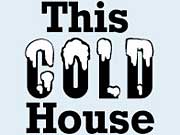 |
| Governor Tim Pawlenty addresses the Governors' Ethanol Coalition in St Paul. (MPR photo/Laura McCallum) |
St. Paul, Minn. — Minnesota was the first state to require that all gasoline sold in the state contain 10-percent ethanol. Montana and Hawaii have passed similar laws, although they haven't gone into effect yet. This year, Pawlenty pushed for doubling Minnesota's ethanol mandate to 20-percent by the year 2013. He says the events of the last few months have made it clear that the nation must reduce its dependence on fossil fuels.
"I think seeing Hurricane Katrina, Hurricane Rita, instability in the Middle East and $3 or $4 gas has hopefully shocked us all to say, "Hey, we gotta do something and do it better than we have in the past," says Pawlenty.
Pawlenty challenged all states to achieve 10-percent ethanol use by the year 2010. He says ethanol can benefit states that aren't corn-producers, since ethanol can be made out of sugar, other grains and even garbage. He also defended ethanol subsidies, which critics have questioned.
"Every other fuel is subsidized too," he says. "This notion that ethanol is subsidized and somehow it's therefore tainted is ridiculous, because we subsidize oil like crazy! Look at the federal tax code and the incentives we give to oil exploration and production and refining."
Pawlenty says ethanol has the added benefit of creating jobs in rural America. He says only people on the far margins of the political spectrum oppose ethanol.
While that may be true, many states aren't convinced an ethanol mandate is the best way to increase its use.
Illinois doesn't require ethanol use, but does provide a sales tax exemption for E-85, a blend with 85-percent ethanol. Hans Detweiler, deputy director of the Illinois Bureau of Energy, says the sales tax exemption has made E-85 more appealing in light of recent gas price hikes. He says E-85 was about 60-cents a gallon less than regular gasoline the last time he filled up. He says state officials have discussed an E-10 requirement, but haven't decided to go that route.
"Our political environment is very supportive of ethanol, so it's really more a discussion of what's the most pragmatic way to proceed," Detweiler says.
Detweiler says Pawlenty's challenge may renew the discussion in Illinois. Wisconsin is also debating an E-10 mandate. Critics say the requirement will have no effect on gas prices, but will instead lead to more smog.
Before Minnesota enacts an E-20 requirement, the state will need a federal waiver. The Environmental Protection Agency will study the effect of 20-percent ethanol on the environment, vehicle engines and performance and other factors.
Researchers at Minnesota State University in Mankato also plan to study the effect of E-20 on vehicles this year. They've already studied 30-percent ethanol blends, and found no significant problems for vehicles. Bruce Jones, a professor in the automotive engineering program, says higher ethanol blends may affect gas mileage.
"I would expect to see a slight decrease in the fuel economy in miles-per-gallon when you add more ethanol," he says. "Most people aren't going to notice it, in my opinion. Because the difference in fuel economy that I would expect over the blend that we have right now would be around three-percent."
Jones says the EPA will conduct much more extensive tests than his researchers have done before deciding whether to grant Minnesota a waiver for 20-percent ethanol.
As Minnesota leads the nation with its ethanol requirement, it's also at the forefront of mandating another renewable fuel - biodiesel. As of Thursday, all diesel fuel sold in the state will be blended with two-percent biodiesel, made from soybean oil or other vegetable oil. State Representative Al Juhnke, a Democrat from Willmar, pushed for the biodiesel requirement.
"Can we someday get to an energy independence where we don't need any other oil products? No. Absolutely not," Juhnke says. "I think that's important to point out. But if we can get the United States to go to a two-percent biodiesel, we could eliminate at least one of our suppliers the size of a Saudi Arabia."
Juhnke says between biodiesel and ethanol, Minnesota could one day be an exporter of energy. He says that would soften the economic blow of record high fuel prices.





